Writer Chat: Nathan Long
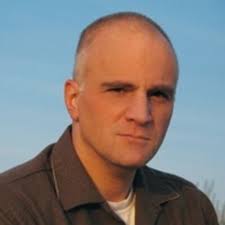 I’ve known Nathan Long for many years and I happen to think he’s long been one of the finest sword-and-sorcery writers active today, which is why I invited him to submit a tale for the second issue of Tales From the Magician’s Skull, and why I’ve been telling people — for years — that they really need to read his Blackhearts books.
I’ve known Nathan Long for many years and I happen to think he’s long been one of the finest sword-and-sorcery writers active today, which is why I invited him to submit a tale for the second issue of Tales From the Magician’s Skull, and why I’ve been telling people — for years — that they really need to read his Blackhearts books.
Nathan was kind enough to answer some questions about his work and the life of a writer, and I’m kind enough to share them with you.
Why don’t you give us a little background about yourself and your work?
I grew up in Pennsylvania and moved to Los Angeles after college to be a screenwriter. Though I had some minor successes, the Hollywood life grew less and less appealing, and when I was offered a chance to write novels for Warhammer, I jumped at the chance. Turned out novel writing was much more my speed, and I had a blast working in that world.
A few years later I managed to sell an original sci-fi novel and a sequel, and I thought I was on my way to a career as a novelist, but I had difficulty selling anything else, so I sought out other opportunities. Now I have the job my twelve-year-old self would have wanted, had it existed at the time. It’s the best job I’ve ever had. I write stories, dialog, and other bits and pieces for computer games.
The only downside is that I don’t do as much of my own writing anymore, but when your dream was to make a living as a writer and you’re making a living as a writer, you can’t really complain, can you?
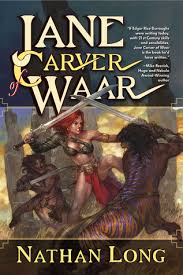 If you were going to direct readers to your fiction, what would you most like them to see?
If you were going to direct readers to your fiction, what would you most like them to see?
I guess I’d start with the Jane Carver novels, Jane Carver of Warr and Swords of Warr, which are the only completely original fiction I’ve published, and into which I poured all the things I like in fiction – high adventure, low humor, slapstick, snappy banter, and way way way too many metaphors.
After that I’d look for the Ulrika the Vampire novels, Bloodborn, Bloodforged, and Bloodsworn, and the Blackhearts novels Valnir’s Bane, The Broken Lance, and Tainted Blood, which are the two favorite series that I did for Warhammer. Both are darker than Jane, but still have their fair share of humor and high adventure.
Do you have some favorite writers? I’d love for you to discuss what you love about them, and what might be learned from studying their craft.
I have so many favorite authors, but I’ll try to narrow it down. Fritz Leiber was the first author that completely seized my imagination. I didn’t just love his Fafhrd and Grey Mouser books, I wanted to move to Lankhmar and live the life of a thief. From Fritz I got my love of low adventure, banter, and wild, poetic metaphor.
P.G. Wodehouse was the master of light farce, who wrote silly stories about the age of English country house weekends, spats, straw hats, and intimidating butlers. His stories are basically musical comedies without the music, and his prose is as bubbly as champagne. From Wodehouse I got my belief that the writer should give the reader something amusing to read every half-page or so.
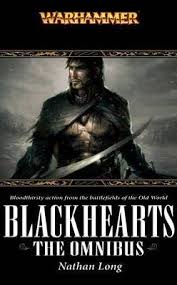 Raphael Sabatini wrote swashbucklers – Captain Blood, The Sea Hawk, Scaramouche, are all his. He was sort of the Tom Clancy of his day. He’s a bit old fashioned for modern readers, but nobody wrote a tighter plot or kept the tension going to the last page better, and always with flawless historical research to back it all up. From Sabatini I got my mania for tight, clockwork plots, and big emotional/romantic payoffs at the end of the book.
Raphael Sabatini wrote swashbucklers – Captain Blood, The Sea Hawk, Scaramouche, are all his. He was sort of the Tom Clancy of his day. He’s a bit old fashioned for modern readers, but nobody wrote a tighter plot or kept the tension going to the last page better, and always with flawless historical research to back it all up. From Sabatini I got my mania for tight, clockwork plots, and big emotional/romantic payoffs at the end of the book.
Sarah Waters writes historical novels, often set in the Victorian age. She too is a master of tight plotting, though her books are darker and more surreal. Though they are more internal dramas rather than adventure stories, you can see she has a secret love of penny dreadfuls and melodramas, and creates moods of delicious horror and dread. From her I am learning atmosphere and subtlety.
Hilary Mantel is another historical novelist, whose books Wolf Hall and Bring up the Bodies completely captivated me. If reading Sarah Waters is like taking opium, reading Hilary Mantel is like drinking strong black coffee. There is no romance in Mantel. Her writing removes the “otherness” from history and makes it real and mundane, in the best possible way. Her characters are normal people – not heroes and villains – driven by motives a modern reader will completely understand. From her I am learning clarity and avoiding stock characters – though I have a long way to go in that regard.
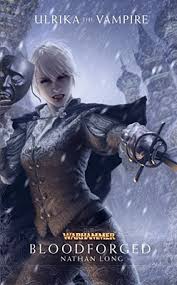 What writing projects are you working on right now?
What writing projects are you working on right now?
Other than the short story I wrote for Tale’s From the Magician’s Skull, I have no prose fiction going at the moment. All my writing is for games now, and I’m very proud of what I’m doing. If you’re a gamer, please check out Wasteland 2, which came out from InXile Entertainment two years ago, and Bard’s Tale 4, which is coming out later this year. Bard’s Tale is 100% my writing. Wasteland 2 is 80% me. Plus I wrote songs for both of them, and the Bard’s Tale songs were performed by some of the best traditional Scottish musicians working today. Coolest thing that’s ever happened to my words!
Dream writing project – if you could get paid to write anything, what would you most like to draft?
Nobody should write anymore Fafhrd and the Grey Mouser stories, but if anyone does, it should be me. Also, if any series was calling out for a few seasons on Netflix it’s Fafhrd and the Grey Mouser, and I am available to write it.
What do you most like to do when you’re not hunched over your computer screen crafting stories?
My current obsession is designing board games, and I have been spending my few spare hours puzzling over systems and mechanics and graphics, etc. I also love playing them, and my girlfriend and I get together with friends as often as we can for game nights.
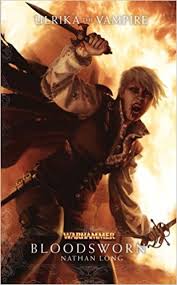 What are your favorite pieces of advice for other writers? Maybe advice you’d have wanted to hear a few years ago.
What are your favorite pieces of advice for other writers? Maybe advice you’d have wanted to hear a few years ago.
Here’s one that comes from personal experience. Be adaptable. I never thought I’d be novelist or a game writer. When I came to LA it was screenwriter or nothing, and out of stubbornness I stuck to that 10 years longer than I should have and got nowhere. If I had been more receptive to other ways of writing for a living, I may have had more success earlier on. I’m not saying you shouldn’t maintain your focus. I still want to write more novels and screenplays. But if you want to write for a living, keep an open mind. As long as it’s a paying gig, it’s a step in the right direction.
Nathan, thanks for coming by!
0 Comments